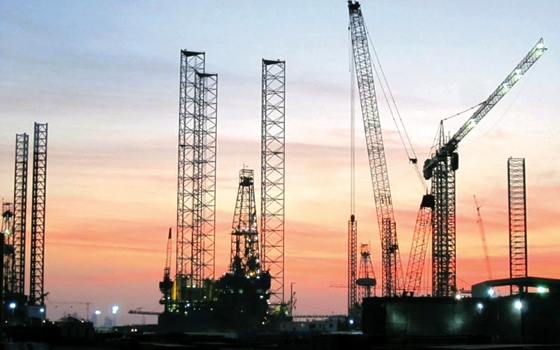Higher capital expenditure on projects in GCC countries is underpinned by sustainable development and diversification, analysis by Qatar National Bank reveals.
Regional economies have used their sizeable surpluses to finance large projects with the aim of diversifying their economies and creating additional pockets of growth.
As a result, the contribution of the non-hydrocarbon sector to growth has increased in recent years, and is currently the main driver of growth in most of these countries.
A significant part of investments is going into infrastructure projects such as the building of new cities, roads, transport networks, real estate and power and water stations.
This is partially to accommodate the region's growing populations, but mainly to create infrastructure that enables the private sector to play a bigger role in the economy.
In the long run, the dynamism and innovation of the private sector are expected to drive growth and development, with the government focusing on creating the right physical and legal environment to encourage that process.
While this "horizontal diversification" away from hydrocarbons is the main common theme behind the large capital spending in GCC countries, there is also "vertical diversification" taking place.
This represents investments in petrochemicals and other industries to move up the hydrocarbon value chain.
Notwithstanding the diversification aim common across all GCC countries, there are important differences in the vision of each country and how they go about executing their visions.
Saudi Arabia's ninth development plan aimed to diversify the economy away from dependence on hydrocarbons and create jobs for the large and growing population.
The development strategy is built around the creation of four new economic cities, each with its own strategic focus, such as knowledge-based industries and services, metals and food production, automotive products, logistics and agribusiness.
To encourage the development of the private sector, the government has given private companies the leading role as the master developers for the economic cities.
Overall, capital expenditure will continue to gather momentum throughout the GCC.
This should underpin the process of diversification and moving towards a sustainable growth model in accordance with the national visions of each respective country.
Gulf Daily News
4 August





































































